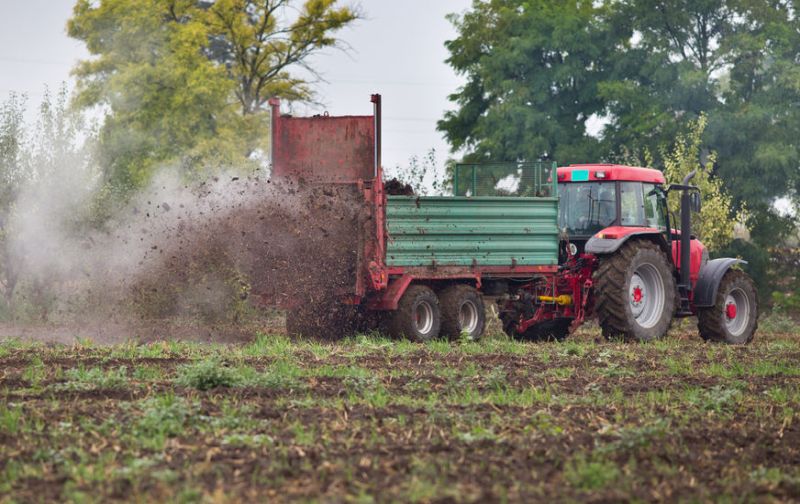
Farmers in Wales have spoken of their concern that water quality regulations published in draft form would push dairy farms 'over the edge'.
If introduced, it would designate the whole of Wales as a Nitrate Vulnerable Zone, an area more than forty times bigger than present.
It would also make the NVZ area eleven times bigger than what was recommended by the government's advisers Natural Resources Wales.
NVZs are areas within Wales that contain surface water or groundwater susceptible to nitrate pollution from agricultural activities.
They are designed to improve water quality in rivers and lakes, but it would mean tougher restrictions on fertiliser and manure spreading.
Numerous industry groups in the country believe the all-Wales proposal would not be effective in delivering water quality improvements.
NFU Cymru recently said it was 'ill-judged and inconsiderate' of the Welsh government to publish draft NVZ regulations during a time of 'stress and anxiety' for farmers.
Now the Farmers’ Union of Wales (FUW) has said farmers are already suffering 'severe impacts' due to the coronavirus, with many 'unable to survive' if the regulations pass.
Large numbers of dairy farmers have seen significant falls in the price they receive as well as delays to payments due to the closure of the service sector due to Covid-19.
This has led to some farmers having to throw thousands of litres of milk away and large numbers losing vast sums of money on a daily basis.
FUW Milk and Dairy produce committee chairman, Dai Miles said: “We are currently doing everything we can to find ways of ensuring farm businesses can survive, but whatever happens our industry will be under severe financial pressures at the end of this crisis.
“The publication of draft regulations that would require families in such a precarious situation to find tens or hundreds of thousands of pounds to comply, plus large annual compliance costs thereafter, feels like a knife in the back to a sector already under severe pressure."
The draft legislation would make farms subject to 'draconian rules', according to the union, which normally only apply in areas where pollution problems have been shown to exist.
He added: “For the vast majority of Welsh farms there is no evidence that such measures are needed, and there is even a real risk that the regulations would actually increase pollution.”
One tenant farmer on the FUW’s dairy committee had been told by experts that compliance with the draft regulations would cost the business £100,000 - money the landlord was not prepared to invest and that the family could not afford, meaning the business would have to end.
“We have repeatedly raised the issue of tenant farms as well as a range of other issues, none of which have been addressed," Mr Miles said.
“On behalf of our dairy industry and every other farmer here in Wales, I hope the Minister uses the time she has now to reconsider these regulations.
"For the sake of all our futures, including that of the environment which we care for deeply,” he said.
